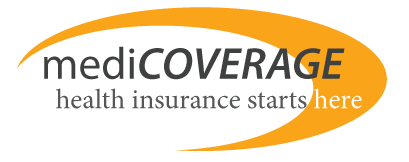What is an HSA?
HSA Definition
If you’ve heard the term “HSA” on television or read it in financial articles, you may wonder, what exactly is an HSA? The acronym HSA stands for Health Savings Account. The HSA is a special type of account that allows the account owner to store money in a tax-free vehicle, and then use that money to pay for health related expenses.
The Health Savings Account was created by Congress to help make health insurance more affordable by giving consumers more direct control over and visibility of how their health insurance dollars are spent. The idea is that, if a consumer puts his or her own money into this specially-designed savings account and then spends it on health services, then they will know exactly where that money goes. For a person living in Ohio, the Anthem Lumenos HSA Ohio plan explanation of benefits page helps explain why an HSA might be right for you.
HSA as a Savings Account
One really unique and potentially beneficial feature of the HSA is it’s potential for saving money tax-free. The idea here is that the money you put into an HSA does not get taxed by the IRS at the end of the year. Then, if you have a healthy year and do not spend all the money in your HSA, that money is yours to keep and roll over to next year. Don’t forget that the money in that account may also earn a bit of interest if you have it in an interest-earning account, though interest earnings on HSA accounts tend to be quite small.
How Does an HSA Work?
The total HSA package has two parts. The first part is the health saving account discussed above and the second part is the HDHP. HDHP stands for “High Deductible Health Plan.” If you want to take advantage of an HSA, you must enroll in a high deductible health plan. By definition, a HDHP has a high deductible, which means that you will be responsible for paying all of your medical expenses out of your HSA until you meet the deductible amount. The HDHP minimum deductible for 2010 is $1,200 for individual coverage or $2,400 for family coverage.
To put this into an everyday example, here’s how the deductible would work. Let’s say you have an HSA with a high deductible health plan and are the head of a family of four. You will pay for all of your doctor visit bills, prescription medication bills and any trips to the emergency room up until you have paid a total of $2,400. Once you reach that point, your insurance company starts to kick in it’s contribution toward paying your bills, with some exceptions depending on the individual plan. Most policies have a co-payment until you reach the out of pocket maximum. The co-payment is the percent of the bill you pay. You can use the funds in the health savings account to offset this also. Keep in mind that the deductible resets each year. This means that in 2011, your contributions toward your deductible reset back to zero. (This is true of all health insurance plan deductibles, not just HSA-compatible HDHPs.)
HDHP plans typically have a relatively lower monthly premium to offset the high deductible. Also to offset the high deductible, the HSA funds are tax-deductible and grow tax-deferred.
HSA Qualified Expenses
But watch out. If you use the funds for something not medically related, you’ll pay a penalty to the IRS. Suppose you wanted a new big screen television and used the HSA to buy it. It doesn’t matter if it makes you feel better, it’s not medically necessary and you’ll pay a penalty. Check out our list of HSA qualified expenses HSA qualified expenses to get an idea of what you can pay for with an HSA.
HSA Contributions
Once the plan is in place, the insured can currently contribute up to $3,050 or the amount of the deductible if it’s an individual plan. If it’s a family plan then the maximum amount allowable for contribution is $6,150. That is, unless the insured is 55 years old but not yet on Medicare. In this case, the tax code allows for an additional $1000 per year contribution. If you have the plan in place by the 1st day of the last month of the taxable year, you can contribute the entire amount and receive the tax deduction. It’s a great tax-planning tool.
Additional HSA Benefits
There are additional benefits besides tax planning and lower payments for insurance. One of them is how you use the money in the HSA account. Many insurance policies don’t cover prescription drugs, eye care, or dental. Since these are all medically related expenses, the government allows you to use the money in an HSA to pay for these without triggering a penalty. That means you can pay for all of these expenses tax-free when you otherwise would not be able to under many other traditional health plans.
You also get to keep any money that you don’t use that year and roll it into the next year. This is a wonderful way to increase the funds and allow you to save even more by increasing the deductible on your health insurance policy. If you don’t spend the money in the account, it’s yours to use as you choose at retirement. Of course, you have to pay tax on the growth if you later decide to spend it on non-medical expenses.
Now you Know!
Now when someone asks, “What is an HSA?” you can tell them it’s a cost effective method of securing quality health insurance, building assets and directing the money for health care the way you think it needs to be spent.

Comments and Questions
Click to leave a Comment